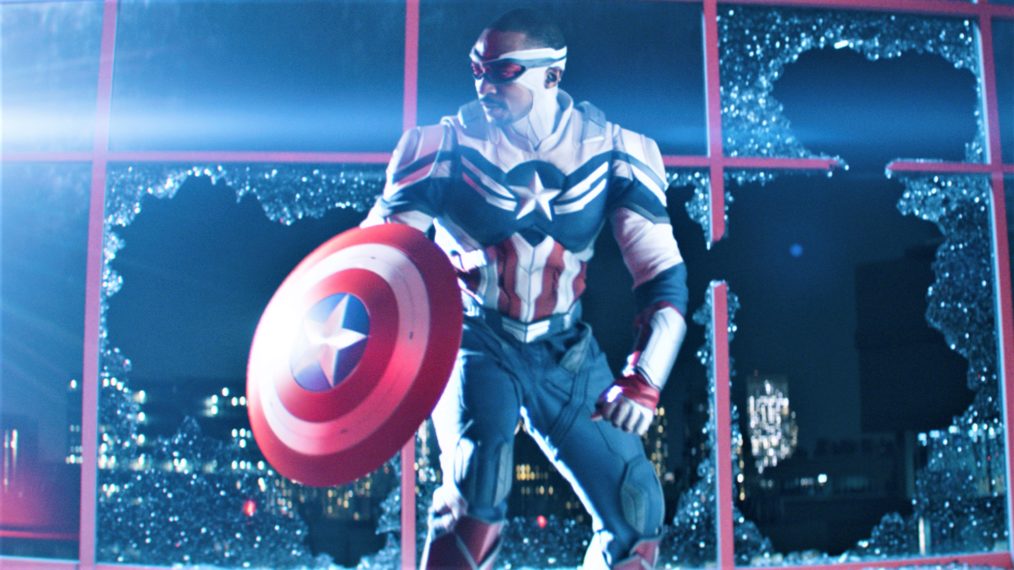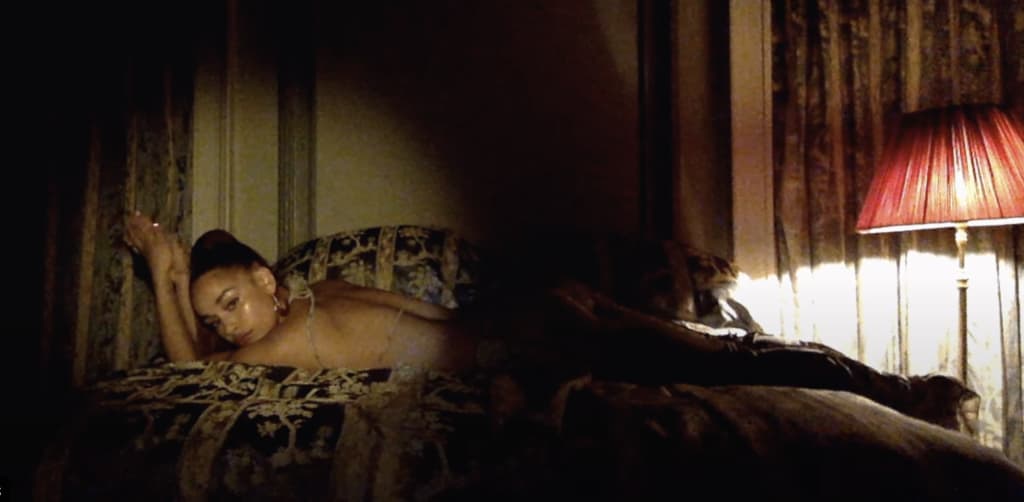#How Being a Combat Filmmaker Helped Create ‘The Inspection’

Table of Contents
How Being a Combat Filmmaker Helped Create ‘The Inspection’
While making The Inspection, Elegance Bratton and his filmmaking team had to contend with shooting during the Mississippi summer in 100-degree-plus heat and a mid-production COVID shutdown that resulted in a four-month hiatus and a loss of a week’s worth of production days, straining an already tight timeline.
“Filmmaking requires a lot of focus, but at the end of the day, I’ve been through much worse,” says the director, who previously earned acclaim with Pier Kids, his 2019 documentary. “I just remind myself: Twenty years ago, you were in a homeless shelter; however difficult this may be right now, it’s not as difficult as what you came from to get here.”
A24’s The Inspection, partially inspired by Bratton’s experience in the Marine Corps, follows Ellis French (Jeremy Pope), a homeless gay Black man who joins the Marines during the fever pitch of the “don’t ask, don’t tell” policy, in an attempt to change his circumstances and possibly earn the approval of his estranged mother.
Ahead of the film’s Nov. 18 theatrical release, Bratton talked to THR about his start as a filmmaker in the Marine Corps and making a “gay, Black Rocky.”
The film is based on elements of your own story, but were you pulling from elsewhere for inspiration for the script?
Beau Travail was a massive influence on me. Something about Claire Denis, her version of the female gaze, I found very instructive to nail down my queer gaze, in the sense that Claire finds these men to be beautiful and dangerous. It was something that really resonated with me in my Marine Corps experience — these men were at the peak of their physical beauty, and me being the gay man that I am, I notice it. But, noticing it is dangerous to me.
Also, Full Metal Jacket and Moonlight were massive influences on me. And honestly, what I always tell people is, “It’s gay, Black Rocky, ultimately.” I watched Rocky probably 200 times in the writing of this film. The idea of someone willing to endure any challenge for the love of a woman — in my case, it’s my mom, and in Rocky’s case, it’s his wife — I found a lot of resonances in Rocky’s journey that I tried to pepper throughout. But mind you, when I was on set, trust me, when we’re running out of time, I’m like: “Yo, just point the camera at the trees like Terrence Malick does. Do something Terrence Malick-y over there with those trees. I’m going to go over and talk to the actors.”
In films about armed service, the boot camp is usually seen in montage or as a quick aside before getting to battle. Why set your entire movie there?
Full Metal Jacket, again, was a massive influence, and in that film they go to boot camp and then they go to war. So, we get to see the principles play out. My experience, as a Black gay man in service, my war, my battle was boot camp. However, queer service members were forced to serve in silence for almost 80 years: French could never just be me, and we don’t see a lot of movies about this particular experience. To do that from the page, I listened to a bunch of podcasts — Making Gay History is one that really played a central role. There are many stories of various service members who were kicked out during “don’t ask, don’t tell.” YouTube was a resource to me. And some of those experiences became French’s experiences.

Courtesy of A24
Did you have time for rehearsals?
I had a good girlfriend, Octaya Jones — she had just finished her drill instructor duty, literally weeks before she got onto my set. She was my military consultant on set. We had a few other Marines under her who helped. But I told her when she came up, “I need you to put your foot in these kids’ asses just like you would anybody who got off the bus in [Marine Corps Recruiting Depot] Parris Island.” And she did it. I had the actors embed themselves with the police academy and train with them because they were receiving military Marine court training to become police officers. There was a real immersive quality to the nature of how the actors performed. And it affected my directing. First off, the sense memory of it all is kind of overwhelming. She would be on set and she would do what drill instructors do: “Hey, recruit!” I would just … (Bratton freezes.) She would come over to me and be like, “Elegance, I’m not talking to you. You’re the director.”
This movie is slightly over 90 minutes. Was the plan always to economize that run time?
Yes, I was very conscious of that. I think that the script that you get greenlit, especially a first feature, can be overwritten. I intended it to be a 96-minute movie the entire time. But when I got into the edit I was like, “Wow, it takes a while to get all this dialogue out.” The first cut we did was two and a half hours. It was just a matter of getting the essence of emotional truth. I have a philosophy about scenes: I want to get in as late as possible and get out as early as possible. And this being my first fiction film, I wrote most of it while I was still in film school. So, certain teachers’ words really resonate in my head. Kasi Lemmons spoke a lot about cinematic flow and that the emotional intent should be guiding the viewing experience versus plot points. And Spike Lee always spoke about just trusting the audience. It was a real educational experience for me to make this movie. I learned a lot about myself as an artist through it, but ultimately I always privilege the action and the frame and then trust the audience to fill in the rest.

Dominik Bindl/Getty Images
How is it to release this movie after the journey you have had?
I became a filmmaker in the Marine Corps. I was a combat filmmaker. The first time I ever held a camera and recorded anything, it was for the Marines. John Huston was a combat filmmaker, I believe, and Gordon Parks, at one point, worked for the U.S. government as a photographer. So, to take it from boot camp to this moment, now, I’m just filled with gratitude. I get to talk to my buddies that I served with and they’re so proud of me. I had a DM the other day from a guy in the Navy — a straight white guy — and he wrote me and was like, “I saw your trailer and I had to find you on Instagram to let you know that when I joined the Navy, I was having problems with my dad and I had to go get at my birth certificate. And I’ve never seen anyone tell our story before.” [In the film, French has to retrieve his birth certificate from his estranged mother.] I couldn’t believe that this guy, he’s so different from me, that he saw himself in what I was going through.
Interview edited for length and clarity.
This story first appeared in the Nov. 16 issue of The Hollywood Reporter magazine. Click here to subscribe.
If you liked the article, do not forget to share it with your friends. Follow us on Google News too, click on the star and choose us from your favorites.
For forums sites go to Forum.BuradaBiliyorum.Com
If you want to read more Like this articles, you can visit our Social Media category.




